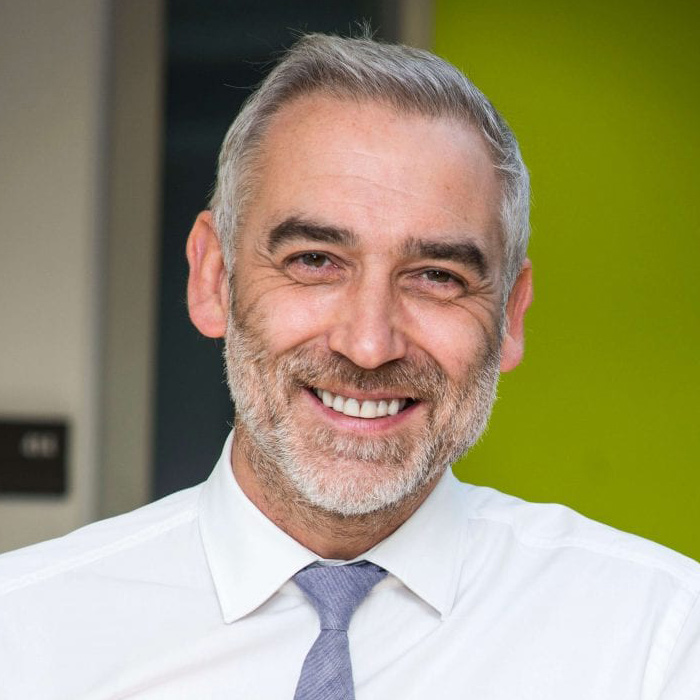1. Abolish Ofsted
Ofsted drives perverse negative outputs at all levels throughout education and acts as a brake on innovation everywhere. That we’ve still got failing schools thirty-three years after it was formed proves precisely what an expensive, reactive and downstream institution it is. Get rid of it. That won’t happen, of course, because middle class parents want the reassurance that their children go to ‘nice’ schools. Abolition would come with a price that no politician is willing to pay.
A number of the other things that I would change were I Education Secretary would come as a consequence of dismantling Ofsted. So, what would those other policies be?
–
2. If I couldn’t abolish Ofsted, I would move its focus upstream and away from the schools.
Every school belongs to a strategic authority – Trust or Local Authority. They’re the places we should be looking if we were serious about school effectiveness.
- Does that authority have the capacity to support its schools?
- Does it have a plan?
- Is it doing its duty with regard to maintaining vital public infrastructure via investment in buildings and facilities?
Shifting the focus away from schools and placing it instead on those responsible for them would place accountability where it actually belongs and would give schools themselves the room to breathe.
–
3. I would streamline inspection down to ten-person teams per government region (saving around £130m per year)
These teams would be tasked with working alongside the regional intelligence networks to identify those schools most in trouble to quickly intervene, rather than relying on an antiquated system in which we might be waiting five years or more to find out, and thus failing an entire generation of children and young people.
–
4. Fix the £11.6bn gap between funding and the infrastructure needs of our schools
Over 1 million students in England are today learning in buildings that are neither weather-proof nor safe. We hear time and again that government should provide more money when we know that central government has no money. This is not an intractable problem. Schools have focused all of their resource on the front-line because that’s where they have felt the measure of accountability. As Education Secretary, I would redraw that line.
I would make schools (and their strategic authorities) partners with government, partners with the national mission. I would be clear that the quantum of resource they received was inclusive of their responsibility to national infrastructure – that means the maintenance and good management of their buildings and estates. That includes their contributions to the generation of clean energy, that includes their own investment in carbon reduction, effective water management and waste reduction. That includes improving their environmental credentials and use of their estates to support biodiversity and greening.
–
5. Require all strategic authorities to publish a 10 year plan that made explicit their commitments, intentions, intentional planning and resourcing.
This would ensure an adequate and ongoing employee pipeline, continuous workforce development programmes, school improvement strategies, leadership training programmes and environmental enhancement commitments. Where these plans were insubstantial, ineffective or not delivered on, I would use my intervention powers to transfer schools in question into other strategic authorities who were able to demonstrate a track record of turning plans into solid actions.
–
6. Intervene with those bad actors in the system who cynically game it
Those who operate selective schools via the back door, those schools who wash their hands of students because they do not bend to an every-narrowed interpretation of conformity, those schools who routinely signpost students towards Elective Home Education or who take less than their equal share of students with additional needs or who manipulate their cohorts in myriad other ways in order to score well in League Tables or whatever version of such is in place at the time. 2010-2024 were the halcyon days of cynical manipulation of a system by a minority of bad actors to the detriment of all bar them. The sooner we look upon that era as a period of shame for our nation, the better.
–
7. Reinstate the National College for School Leadership and make graduation from it a mandatory requirement for Headteachers
The programme would focus explicitly and very heavily on the upstream components of leadership that are fundamental to downstream outcomes. They are: workforce pipeline, workforce development, the overall workforce proposition, infrastructure building, maintenance and management, sound financial planning, long-term thinking, planning and strategising.
This is how we improve the lot of our schools everywhere and at once, in all places and serving all demographics: by understanding that there are holistic and structural interventions that we can make that will make things better. Everywhere.
–
8. Offer the freedom to innovate
Not the kind of innovation which creates so many stable doors that the horses are even more constrained than they would be in standard stables. I mean freedom to innovate such as radical transformation of the notion of the school year in Special and Alternative schools. Why not 52 week per year schools that allow families to take their holidays when they choose, that allow school staff to take holidays when they choose or have enhanced freedom and flexibility to further their training and qualifications? Freedom to innovate with the curriculum to free our schools from only the narrow and restrictive diet of courses and qualifications that score well as far as Ofsted is concerned. Freedom to innovate in a way that allows schools to incline closer towards the wants and needs of the communities and areas in which they serve rather than a once-size-fits-nobody narrowed school pathway that offers the binary prospect of university or fail?
–
9. Require the authorities responsible for schools to publish their plans for increasing the bandwidth in their mainstream.
That means maintaining more children/ young people comfortably within mainstream settings and communities. That may mean enhanced training, focused resourcing, revised systems and policies, re-visioned facilities, environments and access. I understand that that means a move away from measuring schools JUST by the bluntest of instrument outcomes measure. I am certain that a far more nuanced series of measures to understand effectiveness offers much better prospects and value-for-money to the tax payer, to parents in general, to children and young people, to the workforce in schools and to the country at large.
–
10. Make clear that our schools are the vanguard of the nation’s renaissance
I would issue the rallying call to arms and be clear that our mission is to be the best in the world in terms of children’s and young people’s experience in school and their preparedness for taking their place in our society as responsible, capable, resourceful and discerning adults. I would be clear that experiencing play, the outdoors, learning the importance of co-operation, collaboration and partnership, understanding with deep insight the dilemmas that they are faced with in their daily lives through emerging technologies, technological change, social medias and other are necessary, legitimate and crucial components of any curriculum alongside the basics of English and Maths. I would be explicit that our problem solvers, innovators, negotiators and fixers of the future require rich and ongoing opportunities to experiment, fail and try again, to explore, be creative, flex their imagination muscles and to become comfortable in environments that are beyond their current comfort zone.
As Education Secretary, I would be clear that the entire world is our resource, that it offers us a wealth of learning opportunities about what is best in class, what is impacting and making the transformational difference elsewhere, what is delivering enhanced life chances and a citizenry more prepared for the future than are our young people right now. I would be encouraging us to go out into the world and to confidently explore those rich questions.
–
11. Then, I would do the next ten things.
Alas, they may be for another day….






